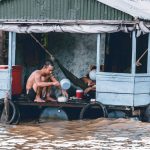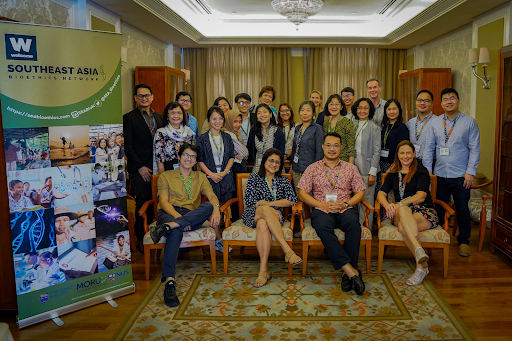
Bioethics In Southeast Asia: Ideals and Challenges
October 12, 2017
Exploring Ethical Dimensions of Migration Health: A Workshop Overview
December 17, 2023
Bioethics In Southeast Asia: Ideals and Challenges
October 12, 2017
Exploring Ethical Dimensions of Migration Health: A Workshop Overview
December 17, 2023Building the Future of Bioethics in Southeast Asia: The Vision, Mission and Values of the Southeast Asia Bioethics Network
Workshop to form the Southeast Asia Bioethics Network
9-10 October 2023, Langkawi, Kedah, Malaysia

In a momentous two-day workshop hosted at The Danna Resort in Langkawi, Kedah, Malaysia, on the 9th and 10th of October 2023, the Southeast Asia Bioethics Network took a significant stride toward its formation. Gathering 26 experts from various Southeast Asian countries, the workshop served as a cornerstone for the creation of a collaborative platform for bioethics in the region, leading to the formulation of SEA Bioethics Network's Vision, Mission and Values.
The heart of this initiative was a modified Policy Delphi process, fostering insightful discussions, debates, and, most importantly, a consensus on SEA Bioethics Network's Vision, Mission and Values. The intensive and inclusive discussions led to the emergence of a shared vision and a united commitment among the participants.
Amidst the profound discussions, an engaging and uplifting interlude occurred as the participants sang together during a coffee break. This harmonious moment not only provided a reprieve from the rigorous deliberations but also symbolised the harmony and unity that would become fundamental to the Vision and Mission of the Southeast Asia Bioethics Network, as participants came together in both song and purpose during this workshop.

SEA Bioethics Network envisions becoming the leading resource for bioethics in Southeast Asia, inspiring local, regional and global solutions. The Network aspires to be a wellspring of knowledge, a platform for guidance, and a catalyst for positive change in the realm of bioethics across the region.
The Mission of SEA Bioethics Network encompasses a commitment to promote respectful dialogue and diversity in support of an inclusive, vibrant and sustainable bioethics community in the region. It seeks to increase awareness, capacity and collaboration for impactful bioethics research, mentorship, education and practice. The Network staunchly commits to raising Southeast Asian perspectives on bioethics and providing a platform for unheard and underrepresented voices in this field. The Network strives to understand regional bioethical issues and aims to engage with relevant stakeholders and communities to co-produce meaningful research and context-specific solutions.
SEA Bioethics Network's values provide the moral compass for its journey. These values are more than just words; they are the principles that will guide its endeavours. The successful conclusion of the two-day workshop marked a pivotal milestone for the bioethics community in SEA. With a vision to lead, a mission to promote diversity, and values grounded in sustainability, inclusivity, integrity, courageousness and solidarity, SEA Bioethics Network is set to play a pivotal role in shaping the bioethical landscape of the region.

Acknowledgment: Intellectual Contributors to the Formulation of Vision, Mission and Values
Southeast Asia Bioethics Network expresses heartfelt gratitude to the following individuals for their invaluable intellectual contributions towards the formulation of the Vision, Mission and Values of the Southeast Asia Bioethics Network and providing insightful suggestions on the way forward for the Network:
Đong Thi Hoàl Tàm (Oxford University Clinical Research Unit)
Graeme Thomas Laurie (University of Edinburgh)
Leander Penaso Marquez (University of the Philippines Diliman)
Lim Mingjie Jane (Changi General Hospital)
Mark Tan Kiak Min (Universiti Teknologi MARA)
Mary Elizabeth Chambers (Oxford University Clinical Research Unit)
Maude Elvira Phipps (Monash University)
Nabila Puspakesuma (Universitas Gadjah Mada)
Napat Khirikiekkong (Mahidol Oxford Tropical Medicine Research Unit)
Nguyen Thi Thu Hang (Oxford University Clinical Research Unit)
Ong Ai Kiang, Serene (National University of Singapore)
Pacifico-Eric Eusebio Calderon (St. Luke's Medical Center)
Pol Srey Mom (Angkor Research)
Sengchanh Kounnavong (Lao Tropical And Public Health Institute)
Soputhy Chansovannara (National Institute of Public Health)
Supa-at Asarath (Mahidol Oxford Tropical Medicine Research Unit)
Yong Moi Ling (Ministry of Health, Brunei)
